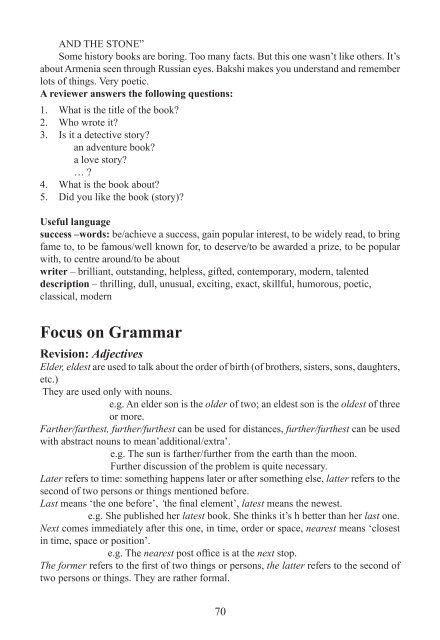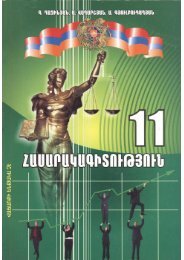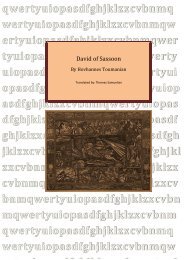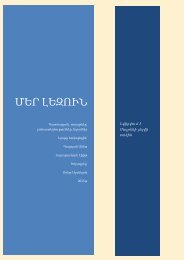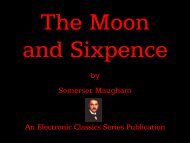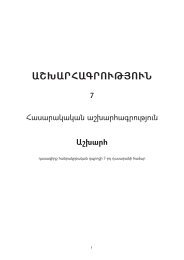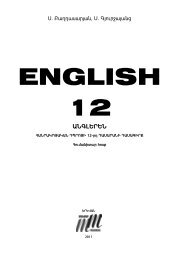Focus on Grammar
Focus on Grammar
Focus on Grammar
Create successful ePaper yourself
Turn your PDF publications into a flip-book with our unique Google optimized e-Paper software.
AND THE STONE”Some history books are boring. Too many facts. But this <strong>on</strong>e wasn’t like others. It’sabout Armenia seen through Russian eyes. Bakshi makes you understand and rememberlots of things. Very poetic.A reviewer answers the following questi<strong>on</strong>s:1. What is the title of the book?2. Who wrote it?3. Is it a detective story?an adventure book?a love story?… ?4. What is the book about?5. Did you like the book (story)?Useful languagesuccess –words: be/achieve a success, gain popular interest, to be widely read, to bringfame to, to be famous/well known for, to deserve/to be awarded a prize, to be popularwith, to centre around/to be aboutwriter – brilliant, outstanding, helpless, gifted, c<strong>on</strong>temporary, modern, talenteddescripti<strong>on</strong> – thrilling, dull, unusual, exciting, exact, skillful, humorous, poetic,classical, modern<str<strong>on</strong>g>Focus</str<strong>on</strong>g> <strong>on</strong> <strong>Grammar</strong>Revisi<strong>on</strong>: AdjectivesElder, eldest are used to talk about the order of birth (of brothers, sisters, s<strong>on</strong>s, daughters,etc.)They are used <strong>on</strong>ly with nouns.e.g. An elder s<strong>on</strong> is the older of two; an eldest s<strong>on</strong> is the oldest of threeor more.Farther/farthest, further/furthest can be used for distances, further/furthest can be usedwith abstract nouns to mean’additi<strong>on</strong>al/extra’.e.g. The sun is farther/further from the earth than the mo<strong>on</strong>.Further discussi<strong>on</strong> of the problem is quite necessary.Later refers to time: something happens later or after something else, latter refers to thesec<strong>on</strong>d of two pers<strong>on</strong>s or things menti<strong>on</strong>ed before.Last means ‘the <strong>on</strong>e before’, ‘the final element’, latest means the newest.e.g. She published her latest book. She thinks it’s h better than her last <strong>on</strong>e.Next comes immediately after this <strong>on</strong>e, in time, order or space, nearest means ‘closestin time, space or positi<strong>on</strong>’.e.g. The nearest post office is at the next stop.The former refers to the first of two things or pers<strong>on</strong>s, the latter refers to the sec<strong>on</strong>d oftwo pers<strong>on</strong>s or things. They are rather formal.70


